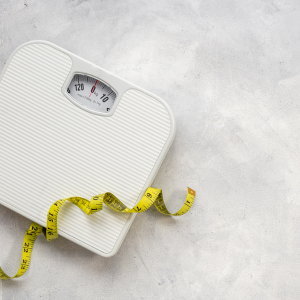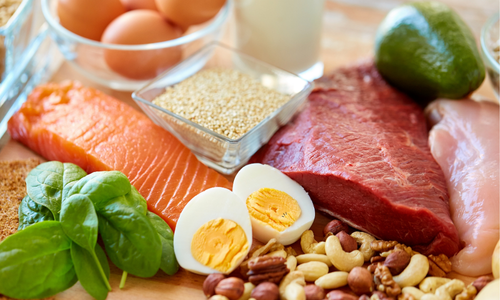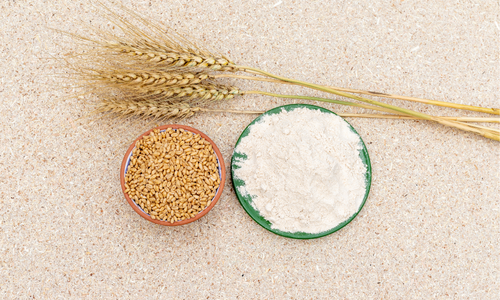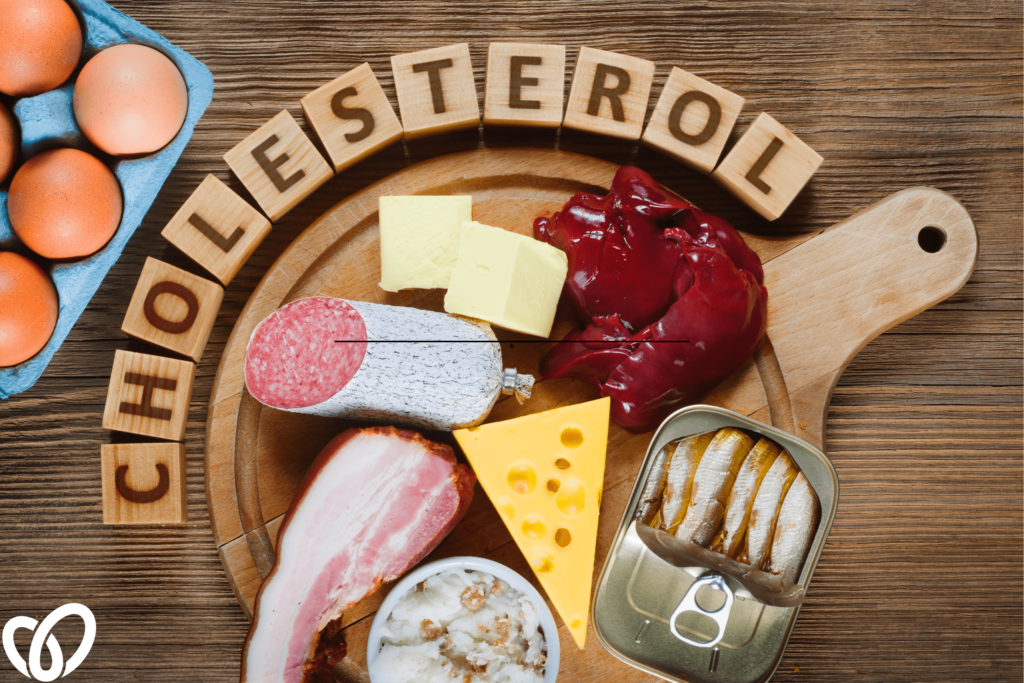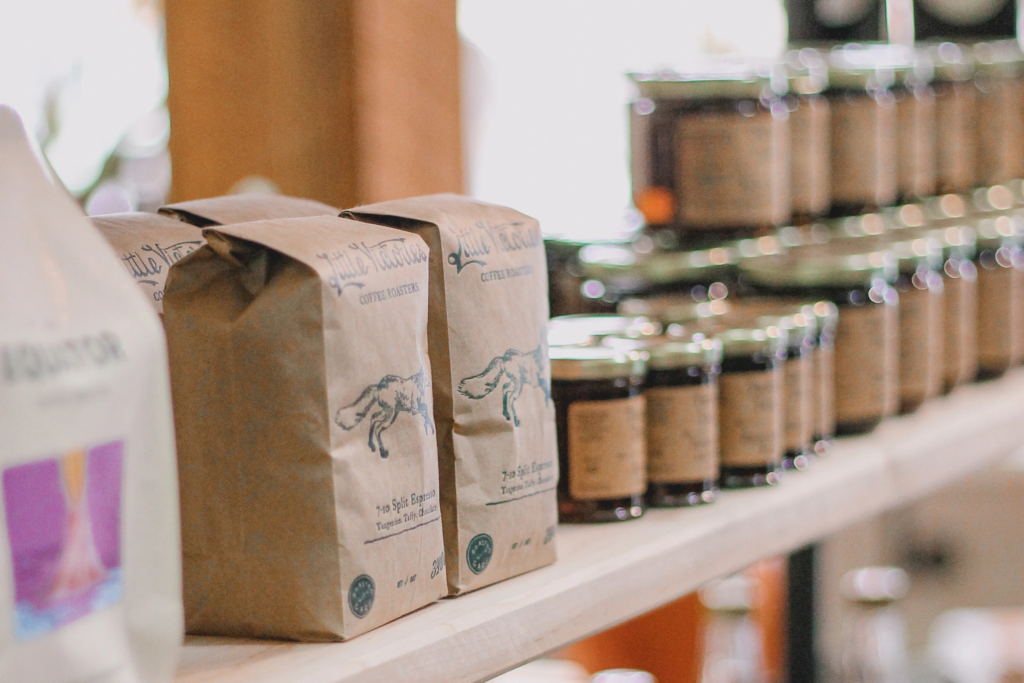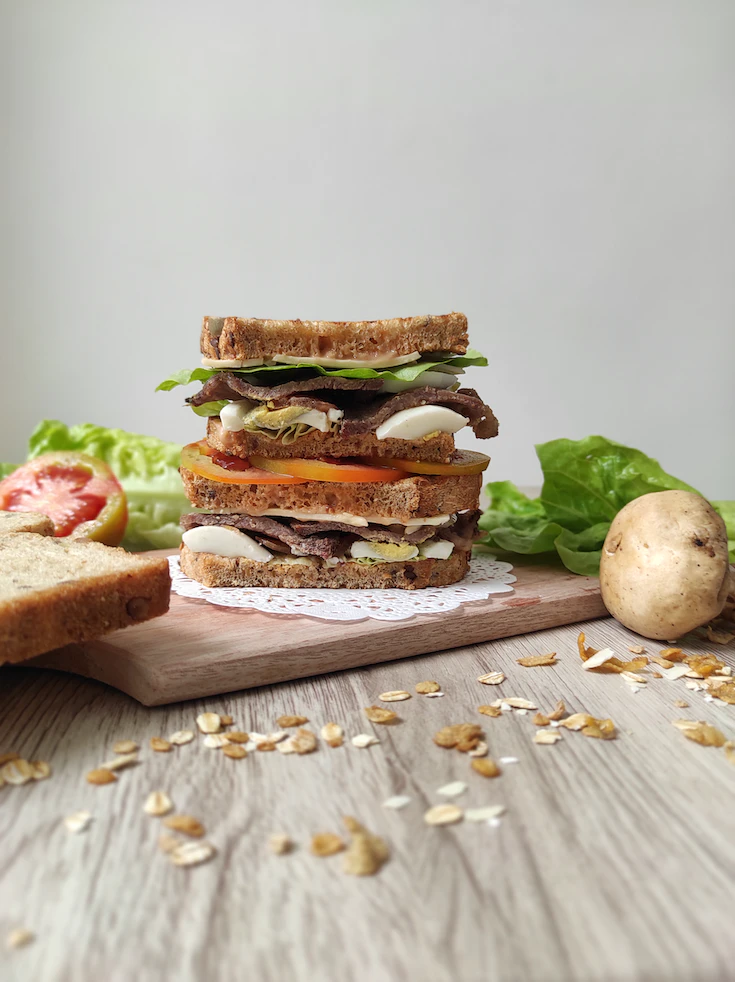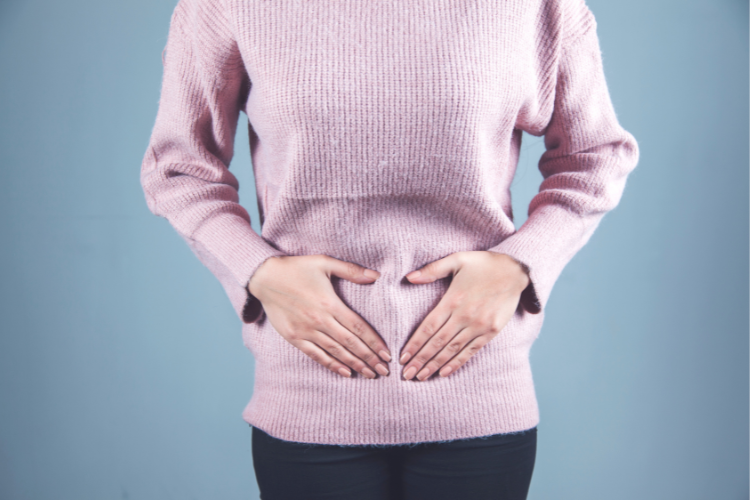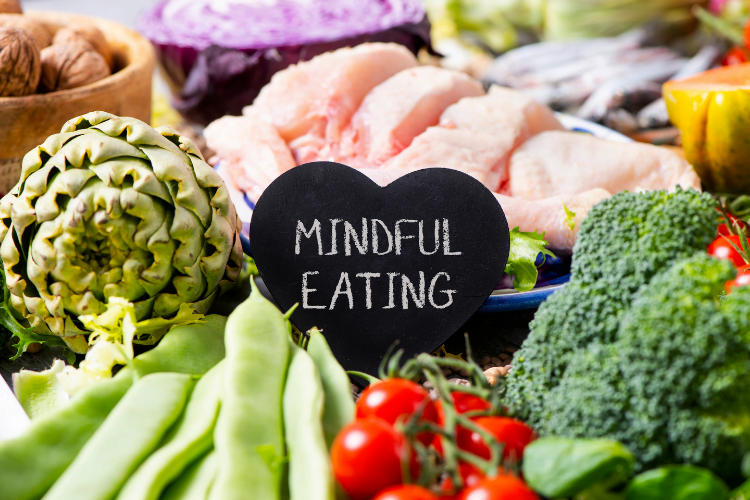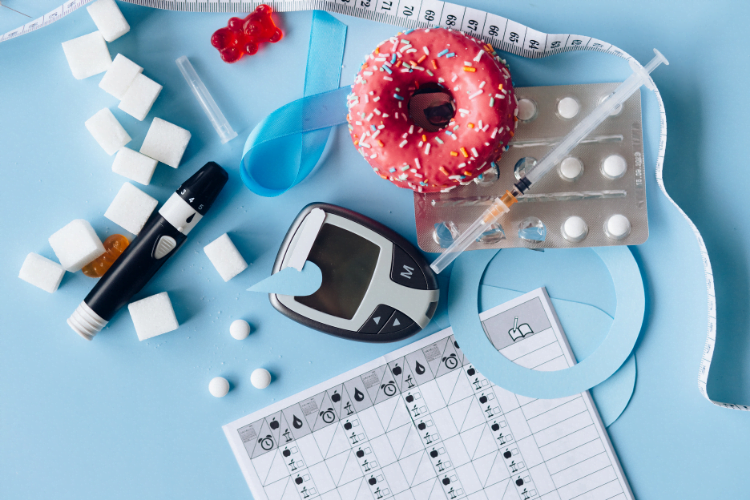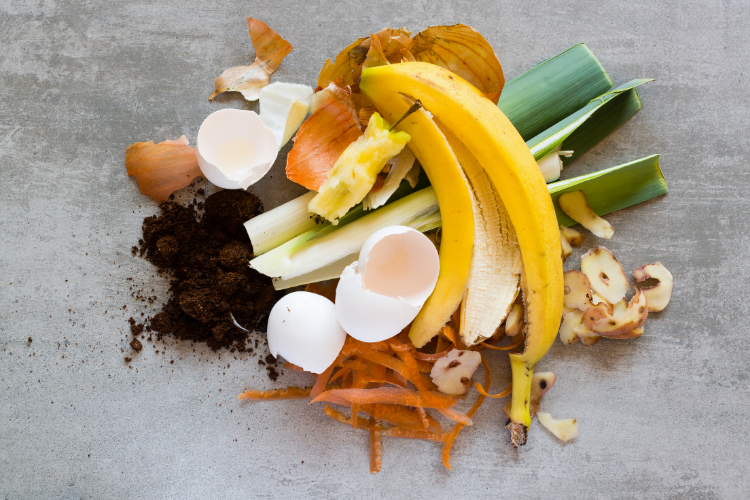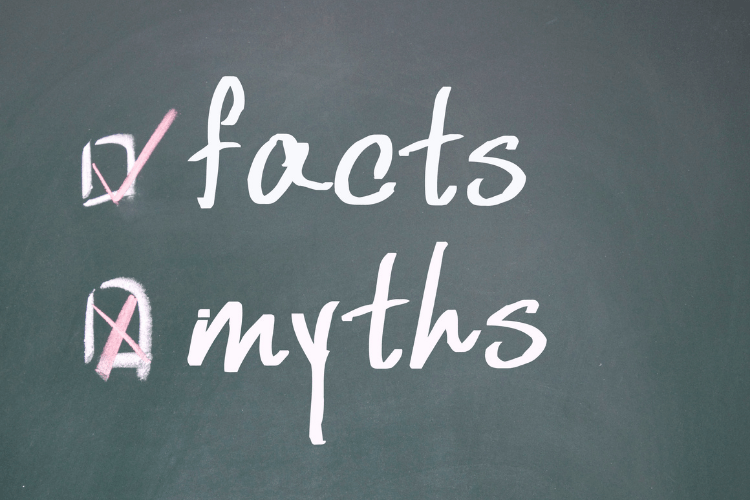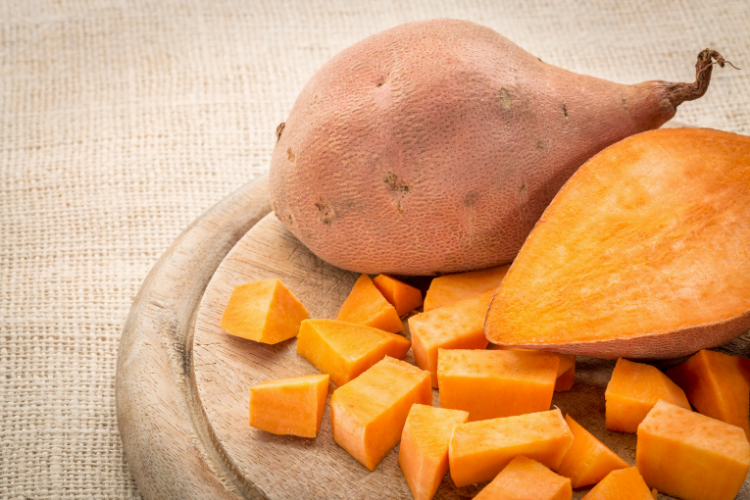Menopause can feel like navigating a new normal, with symptoms impacting everything from energy to mood. But these symptoms don’t have to control your life. With expert-backed strategies on mindful nutrition and lifestyle changes, you can manage symptoms effectively and maintain a healthy, balanced lifestyle throughout this transition.
What is menopause?
Menopause marks the end of your menstrual cycle due to lower hormone levels and is confirmed after 12 consecutive months without a period, typically between ages 45 and 55. Perimenopause, the transition phase before menopause, can start as early as your 30s and brings symptoms while your periods are still occurring
“Many women experience severe perimenopausal symptoms, and some go through early menopause, raising concerns about their long-term health. This stage may also increase the risk of heart disease due to rising blood pressure, cholesterol levels, and potential weight gain,” explains Amie Leckie, Health and Wellbeing Specialist at Heart Research UK.
“During perimenopause, oestrogen levels begin to drop. This hormone plays a key role in reproductive health and supports bone density and remineralisation. After 35, the body naturally loses calcium, and as menopause progresses, this loss can speed up, increasing the risk of osteoporosis. With an aging population, more women are spending more years in a postmenopausal state, so addressing these health risks has never been more important.”
This drop in oestrogen may bring a host of symptoms and risk factors like anxiety, mood swings, brain fog, weight gain, and hot flushes, which can potentially impact daily life, relationships, and work.
How your diet can support you
What you eat during this transition matters. With muscle mass decreasing, cutting calories and staying active are key to maintaining a healthy weight and overall well-being.
“A diet high in ultra-processed foods, refined carbohydrates, sugar and low in fibre, can negatively impact the severity of menopausal symptoms. So, you want to consume a diet made up of lots of wholefoods and limit your consumption of convenience foods,” Amie suggests.
Calcium and vitamin D are essential for strong bones, especially during menopause. The National Institutes of Health recommends at least 1,200 mg of calcium daily, found in milk, yogurt, cheese, and fortified plant-based alternatives.
Vitamin D helps your body absorb calcium and is made when your skin is exposed to sunlight. In the UK, sunlight can be scarce from September to April, so try to get ten minutes of direct sunlight once or twice a day. Just remember to protect your skin from too much exposure by covering up or using sunscreen.
“Daily vitamin D supplements, especially during autumn and winter months are ideal” Amie advises. “You can also get vitamin D from food, good sources include oily fish such as salmon, mackerel, sardines and trout, mushrooms, egg yolks and fortified plant-based drinks are ways of incorporating vitamin D in your diet.”
Protein is essential for repairing and growing cells, and it can be found in meat, fish, dairy, nuts, seeds, beans, and lentils.
“Including a variety of healthy protein sources in your diet supports overall wellbeing and helps maintain a healthy weight by increasing satiety,” says Amie. “Opt for both animal-based proteins like fish, eggs, low-fat dairy, and lean meats like chicken and turkey as well as plant-based proteins like quinoa, tempeh, and tofu.”
“Boosting your protein intake can enhance the benefits of resistance training which can be very beneficial during menopause,” Amie adds. “Since muscle mass tends to decrease during this phase, strength training a few times a week can help counteract this loss and improve bone health.”
Regular exercise improves sleep, reduces anxiety, and lifts low moods, all common symptoms of menopause. Resistance training boosts your metabolism and strengthens your bones and muscles. Yoga and Pilates are excellent for building strength and balance. Aim for at least 150 minutes of moderate-intensity exercise each week, plus two strength training sessions, to support overall health.
A diet rich in wholegrain foods, which are high in fibre, can lower the risk of heart disease, diabetes, and other diet-related conditions. Wholegrain foods help control your cholesterol, weight, and blood pressure
“Swapping to higher fibre foods can ease menopause symptoms,” says Amie. “Wholegrain bread, oats, brown rice, chickpeas, and beans are great heart-friendly options. And don’t forget fruits and vegetables, they’re not only packed with fibre but also full of vitamins and minerals.”
If you’re approaching or going through menopause, avoid overhauling your diet all at once, it can be overwhelming. Instead, try adding more healthy foods gradually, like adding an extra side of vegetables or swapping half the mince in dishes like chilli or spaghetti Bolognese with lentils. Cooking from scratch is always best, helping you limit processed foods. Balance is critical when it comes to your diet during menopause, and it can help you feel your best while managing symptoms.
Remember to look after your mental health
Your mental health is equally as important as your physical health. Menopause can bring mood shifts and increased anxiety, which can trigger intense hot flushes. This is largely due to declining oestrogen levels, which affect the production of neurotransmitters like serotonin. It can also disrupt your sleep, and persistent sleep disturbances are linked to mood and cognitive issues.
“A way to ensure a balanced nervous system is by regularly consuming plant oestrogens known as phytoestrogens, which mimic oestrogen in the body and help manage menopausal symptoms. Foods such as fermented soy, flaxseeds, beans and legumes are perfect phytoestrogen options.
“In Japanese, the word ‘Konenki’ refers to menopause, but it isn’t seen purely as a negative or a loss of menstruation. Instead, it means ‘turn of life,’ embracing menopause as a natural stage of growing older. Menopause can be challenging, but there’s plenty you can do to take back control. It’s a transition, a new phase of life, and a time to prioritise self-care like never before.”
Take charge of your heart health during menopause with small but powerful changes!



